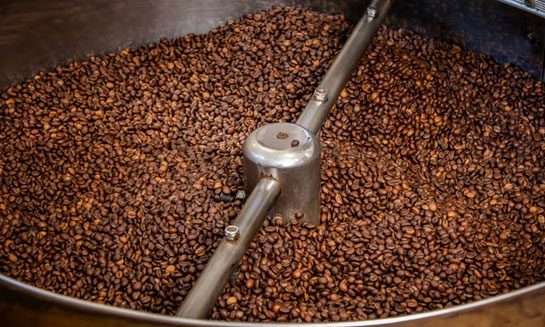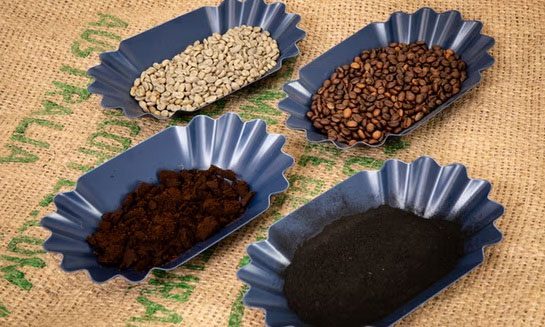Australian Engineers Claim They Can Make Concrete 30% Stronger by Incorporating Processed Coffee Grounds.
Every year, the world produces about 10 billion kilograms of coffee grounds, most of which end up in landfills. The disposal of this organic waste poses environmental challenges as it emits large amounts of greenhouse gases such as methane and carbon dioxide, contributing to climate change.
Meanwhile, with the global construction market booming, the demand for concrete also creates a series of other environmental challenges. The extraction of natural sand from riverbeds to meet the rapidly increasing demand in the construction industry has significantly impacted the environment.

Researchers in Australia have used coffee grounds to make concrete stronger. (Photo: Guardian).
“We can keep coffee grounds out of landfills and also better conserve natural resources like sand with this approach,” said engineer Jie Li, who works at RMIT University in Australia.
It is not possible to add organic products like coffee grounds directly to concrete since they release chemicals that reduce the strength of the building material. Therefore, the research team heated the coffee grounds at a temperature of 350 degrees Celsius while removing oxygen from them.
This pyrolysis process helps break down the organic molecules in the coffee grounds, creating a porous carbon-rich material known as biochar, which can bond well with cement.
They converted coffee grounds into biochar and then used this material to replace part of the sand needed for concrete. This process involved heating the coffee waste to around 350 degrees Celsius to produce biochar. The researchers found that replacing 15% of the sand typically used in concrete with coffee biochar enhanced the concrete’s strength by 29.3%.
Dr. Shannon Kilmartin-Lynch, co-chair of this research, affirmed that the idea originated from a desire to minimize coffee waste.

Samples of coffee beans, roasted coffee beans, coffee grounds, and coffee biochar. (Photo: Guardian).
The research team is collaborating with local authorities on future infrastructure projects such as constructing walkways and sidewalks. They argue that this technique could benefit the environment by reducing the amount of coffee grounds sent to landfills and decreasing the demand for natural sand in the construction industry.
According to the National Food Waste Strategy Feasibility Study in Australia, food waste accounts for about 3% of the nation’s annual greenhouse gas emissions. Additionally, Australia generates approximately 75,000 tons of coffee waste each year.
The researchers estimate that if all the coffee waste produced in Australia each year were converted into biochar, the resulting volume would be around 22,500 tons.


















































